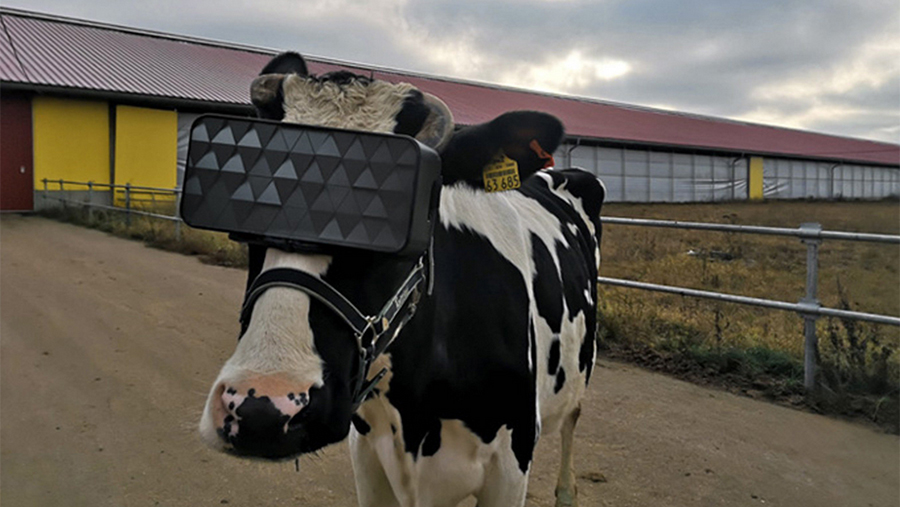There are no products in your shopping cart.
| 0 Items | £0.00 |

 CATTLE can be made more productive if efforts are made to reduce their anxiety according to new research that has led to the introduction of specially-designed virtual reality headsets for cows on a farm in Moscow’s Ramensky district.
CATTLE can be made more productive if efforts are made to reduce their anxiety according to new research that has led to the introduction of specially-designed virtual reality headsets for cows on a farm in Moscow’s Ramensky district.
Nigeria currently has about 21m head of cattle, making her the world's 14th largest producer but despite this, the country is not a major source of beef, milk or dairy products. Due to the absence of a coherent livestock policy, the nation has been torn apart by civil strife as nomadic Fulani cattle herdsmen allow their livestock to roam across Nigeria, destroying farms, leading to communal violence.
As cattle destroy crops and local villages take measures against this, Fulani herdsmen has responded with brutal violence, attacking farming communities with AK 57 assault rifles. Consequently, Nigerian cattle have been caught up in this unending war, resulting in low milk and beef productivity.
Calls for the government to establish dedicated cattle ranches where cattle can be properly catered for, fed nutritious rations and where animal husbandry and veterinary services can be provided have fallen on deaf ears. Although several state governments have pledged to establish cattle ranches, there is not federal government law compelling herdsmen to take their livestock to such ranches.
However, help may be on the way as research has shown that there is a link between a cow’s emotional state and its daily milk yield. In the past, some dairy farms engaged in playing soothing classical music for their cows to lower their stress level and increase productivity, but as technology advances, new mood-altering solutions are introduced.
For instance, at the RusMoloko farm in Moscow, cattle were recently equipped with VR systems adapted for the structural features of cow heads. Moscow’s ministry of agriculture and food confirmed that it had been conducting an experiment into how virtual reality affected cows’ mood and dairy yield.
The developers of the unique VR headsets worked closely with farmers and veterinarians, and relied on cattle-vision research to ensure that the devices were suited for use by cows. It is not clear how long the animals have been wearing the headsets but according to the Moscow Times, initial tests resulted in reduced anxiety and improved overall emotional mood in the herd.
The second stage of the experiment will focus on how virtual reality affects cows’ milk productivity. Researchers plan to expand the VR for cows experiment if they continue to see positive results from this pilot study.